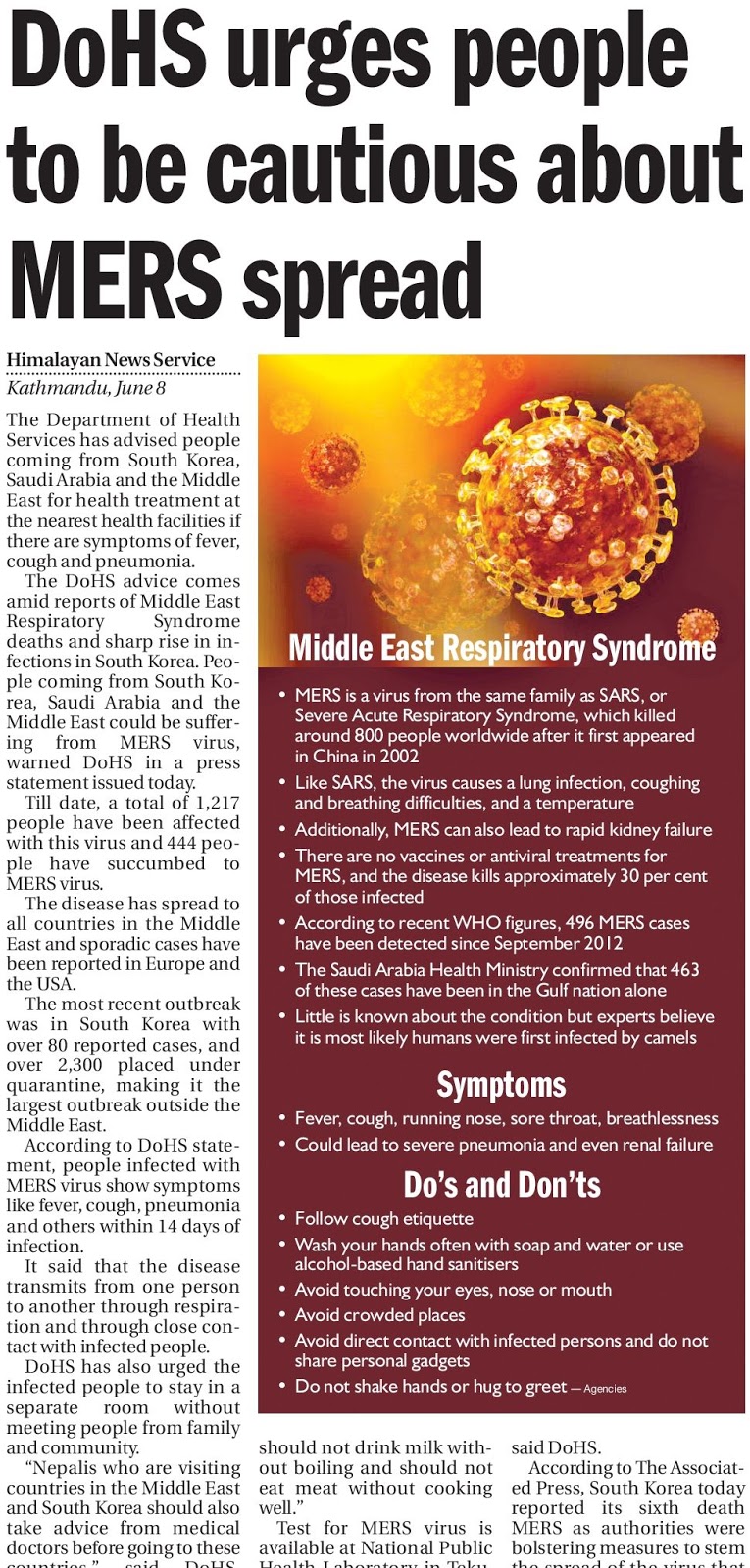The disease has spread to all countries in the Middle East and sporadic cases have been reported in Europe and the USA.The most recent outbreak was in South Korea with over 80 reported cases, and over 2,300 placed under quarantine, making it the largest outbreak outside the Middle East. According to DoHS statement, people infected with MERS virus show symptoms like fever, cough, pneumonia and others within 14 days of infection.It said that the disease transmits from one person to another through respiration and through close contact with infected people.DoHS has also urged the infected people to stay in a separate room without meeting people from family and community.“Nepalis who are visiting countries in the Middle East and South Korea should also take advice from medical doctors before going to these countries,” said DoHS, adding, “While travelling in these countries, people should not drink milk without boiling and should not eat meat without cooking well.”Test for MERS virus is available at National Public Health Laboratory in Teku. Tests can be conducted at other laboratories as well, said DoHS.According to The Associated Press, South Korea today reported its sixth death MERS as authorities were bolstering measures to stem the spread of the virus that has left dozens of people infected.
- MERS is a virus from the same family as SARS, or Severe Acute Respiratory Syndrome, which killed around 800 people worldwide after it first appeared in China in 2002
- Like SARS, the virus causes a lung infection, coughing and breathing difficulties, and a temperature
- Additionally, MERS can also lead to rapid kidney failure
- There are no vaccines or antiviral treatments for MERS, and the disease kills approximately 30 per cent of those infected
- According to recent WHO figures, 496 MERS cases have been detected since September 2012
- The Saudi Arabia Health Ministry confirmed that 463 of these cases have been in the Gulf nation alone
- Little is known about the condition but experts believe it is most likely humans were first infected by camels
- Fever, cough, running nose, sore throat, breathlessness
- Could lead to severe pneumonia and even renal failure
- Follow cough etiquette
- Wash your hands often with soap and water or use alcohol-based hand sanitisers
- Avoid touching your eyes, nose or mouth
- Avoid crowded places
- Avoid direct contact with infected persons and do not share personal gadgets
- Do not shake hands or hug to greet.



